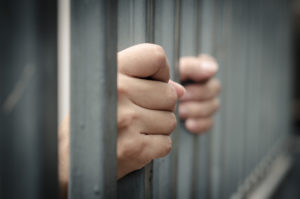Hackensack New Jersey Criminal and DWI Trial Attorneys
Criminal Defense Trial Lawyers in Bergen County, New Jersey

Facing a criminal charge in New Jersey can threaten your reputation, your livelihood, and many other components of your life. Fortunately, you do not need to travel these uncertain waters alone. An experienced criminal defense attorney can serve as your supporter, your defender, and your advocate as you confront what often seems an insurmountable challenge at the outset. The attorneys at The Tormey Law Firm are passionate about what they do and dedicated to turning over every rock and pursuing every possible avenue to achieve the best possible outcomes for their clients. Whether your case involves charges for shoplifting, credit card fraud, theft, or another offense, we will stop at nothing to obtain a successful resolution.
If you or a loved one is facing criminal charges in New Jersey, our lawyers will employ their extensive knowledge of the law, solid connections, deft negotiation skills, and zealous advocacy to help you overcome the allegations against you. Contact our Hackensack offices anytime at (201)-330-4979 to receive a free consultation.
New Jersey Municipal Court Trials
If you decide to take your case to trial in Municipal Court, it is important to remember a few things. First, whether it’s a traffic ticket, a disorderly persons criminal offense, or a drunk driving charge (DWI), your case will be tried in Municipal Court before a Municipal Court judge. There is no right to a jury trial in Municipal Court. As such, the Municipal Court judge is the trier of fact and the law. The State has the burden of proof and goes first. The State can call any witnesses and enter any evidence to prove the case at trial. The standard of proof, as in all criminal cases, is proof beyond a reasonable doubt. After the State rests, the defense has an opportunity to present evidence but doesn’t have to. If the defense chooses, the defendant can take the stand and testify. If the defendant fails to take the stand and testify, that decision cannot and will not be used against him or her in determination of guilt or innocence. After the defense rests, the judge will decide whether the defendant is guilty of the underlying charge. If the defendant is found not guilty, the charges are dismissed and the case is over. However, the defendant may be found guilty on some charges and not guilty on others. If the defendant is found guilty on any charges, the judge will then sentence the defendant in accordance with the penalties for the violation. In Municipal Court, this can range from fines to jail time, and it can include probation and suspension of your driver’s license. You have 20 days to appeal a conviction or the sentence. A Municipal Court appeal must be filed in the Superior Court in which the municipality is located.
New Jersey Superior Court Trials
If your case is not settled by a plea bargain in Superior Court, the case will proceed to trial. At the Superior Court, on an indictable (felony) level charge you have a constitutional right to a trial by jury. The right to this trial by jury can be waived by the defendant in some cases. If this happens, the judge will serve as the trier of fact and law and determine the defendant’s guilt or innocence. This is known as a bench trial.
The jury is usually composed of 14 citizens, 12 of whom will determine your guilt or innocence, with two (2) alternates. The jury must determine whether the State has met the burden of proof, which is “proof beyond a reasonable doubt.” The State has the burden of proof, so they go first. They will call witnesses and admit evidence in an attempt to prove the charges against the defendant. The defense attorney will have an opportunity to cross-examine these witnesses. After the State rests, the defense has an opportunity to call witnesses and present evidence. However, the defense does not have to do this because the State has the burden of proof and the case can be dismissed based on the State’s failure to prove the charges beyond a reasonable doubt even without the defense calling any witnesses. The defendant has a right to testify if he or she chooses, but, again, the defendant does not have to testify. If the defendant chooses not to testify, this decision cannot be used to determine the defendant’s guilt or innocence. After the defense rests, the jury (or judge in a bench trial) will determine if the charges against the defendant were proven beyond the reasonable doubt. The jury must be unanimous in its decision.
If the defendant is found not guilty, this is known as an acquittal. The charges are dismissed and the case is over. If the defendant is found guilty, the case will be scheduled for sentencing in approximately 60 to 90 days. The reason is that a pre-sentence report must be completed. The report includes the defendant’s prior record, the circumstances of the offense, the defendant’s work history, the defendant’s family history, etc. This pre-sentence report allows the sentencing judge, prior to sentencing, to become fully familiar with the defendant.


